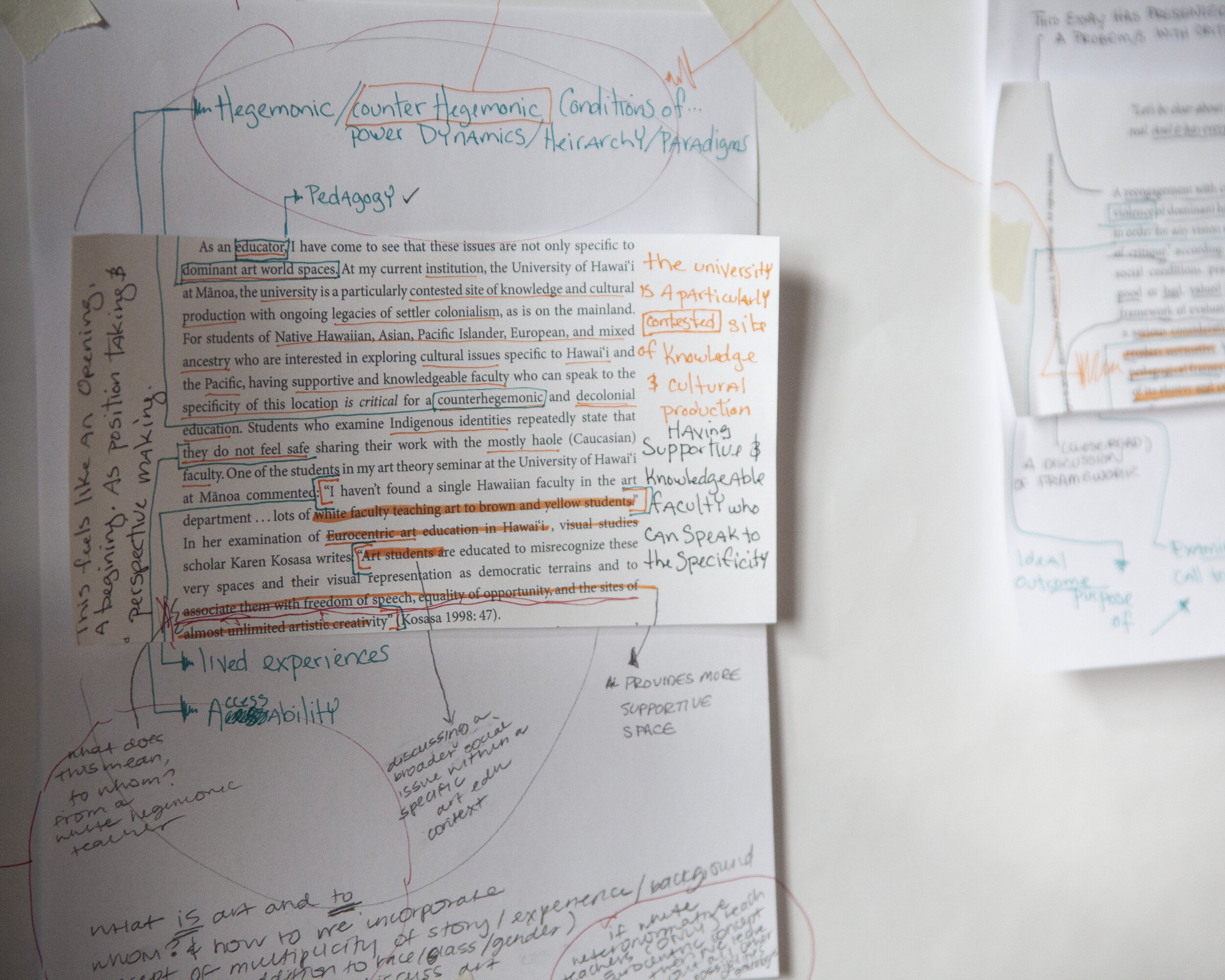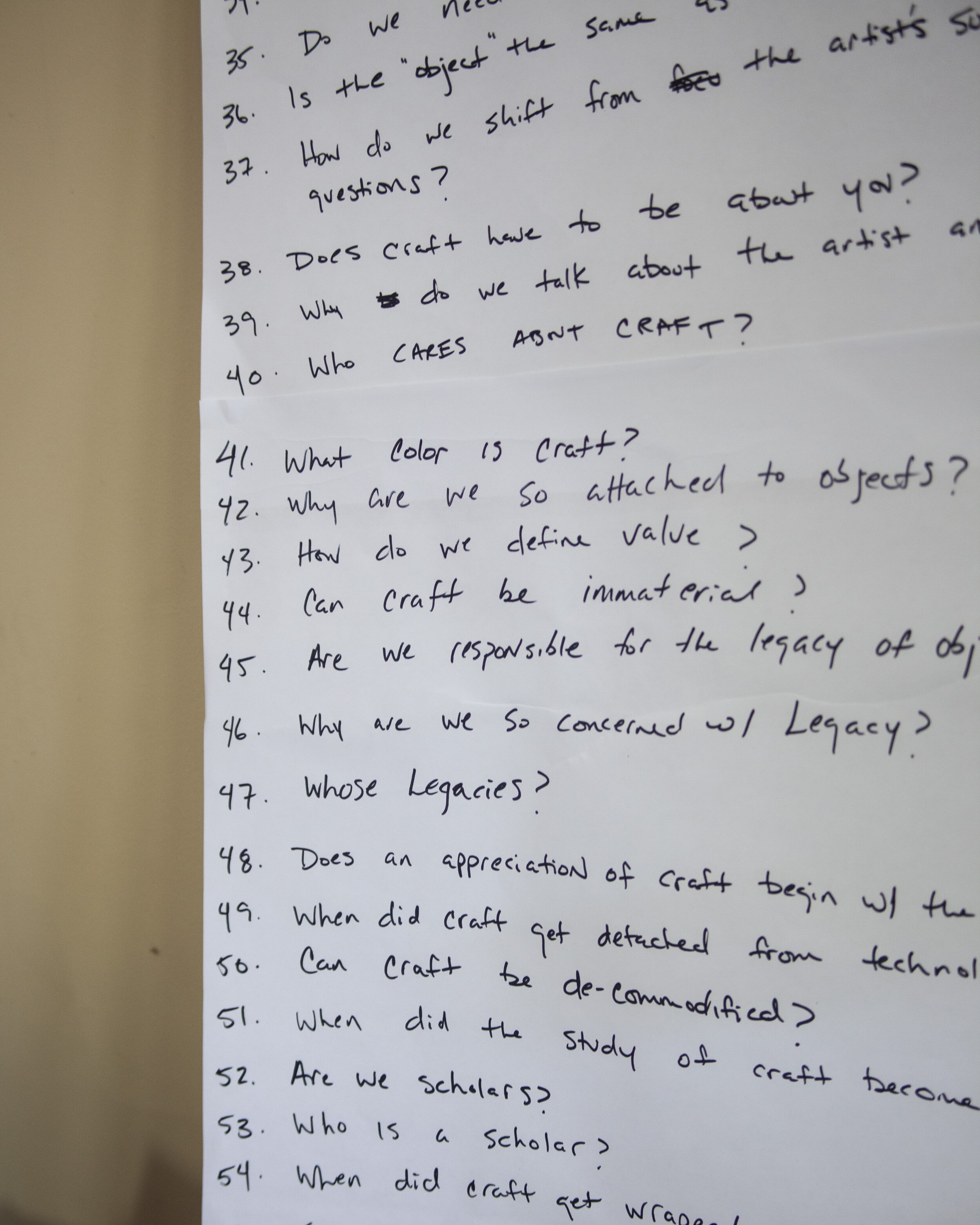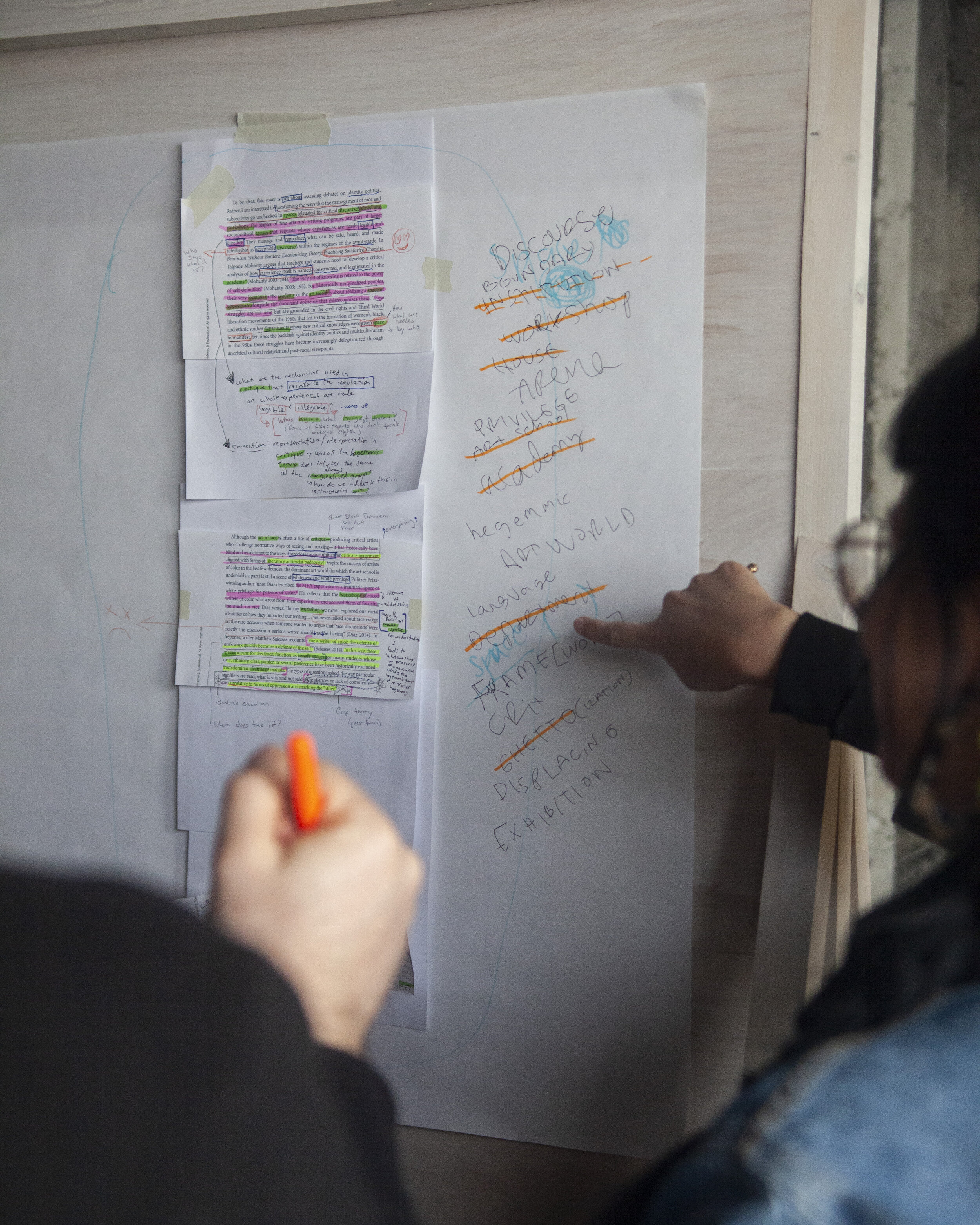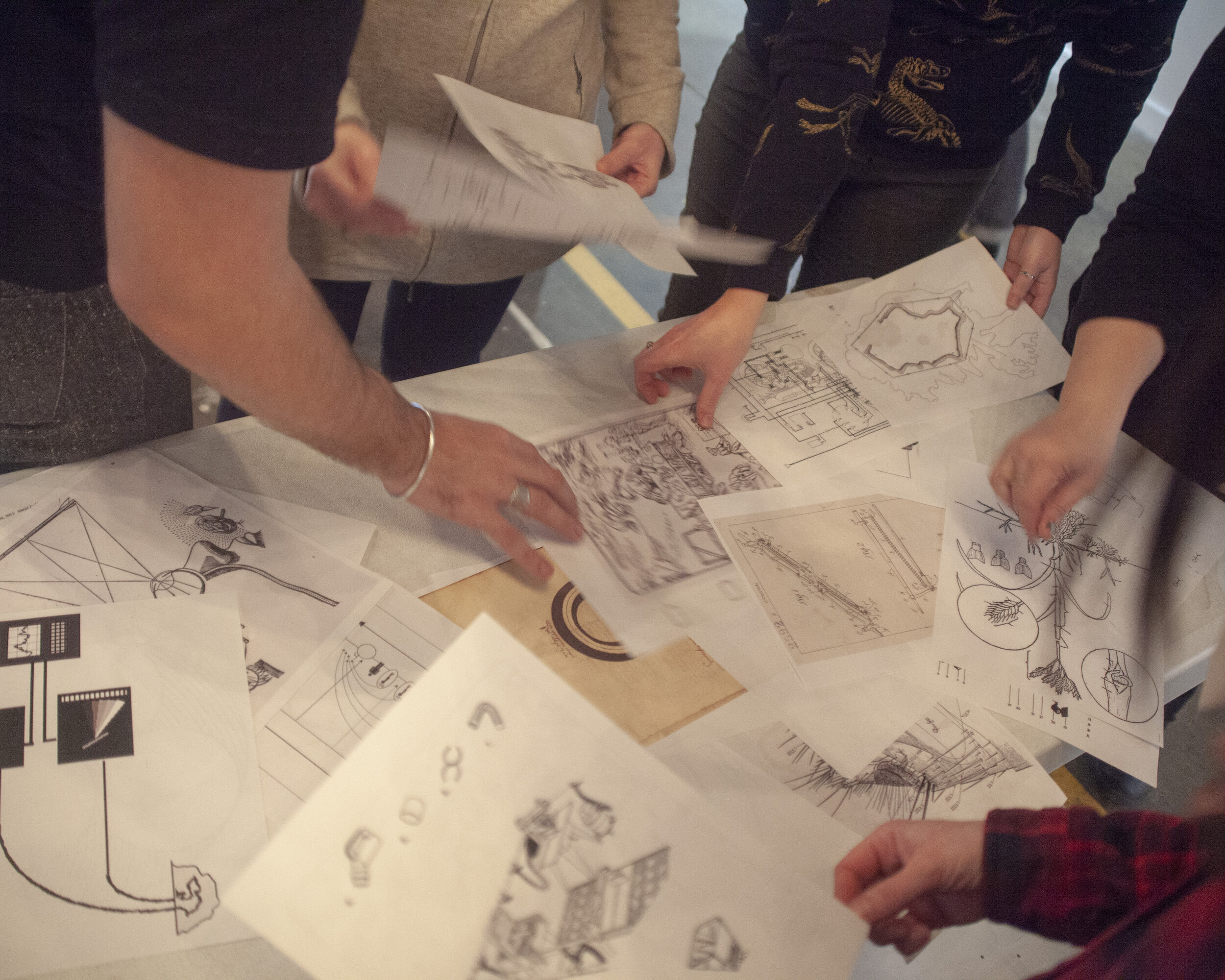Our Curriculum
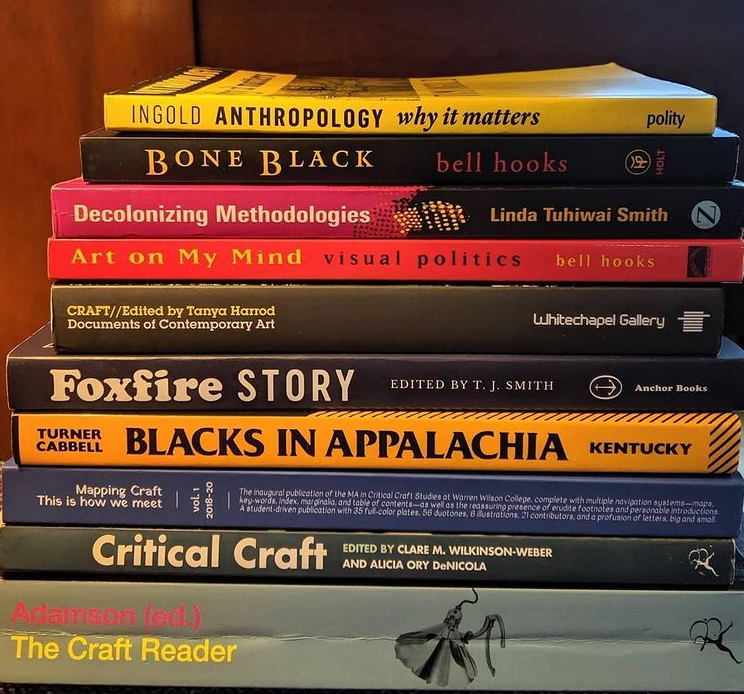
photo credit: @thecrafthatch
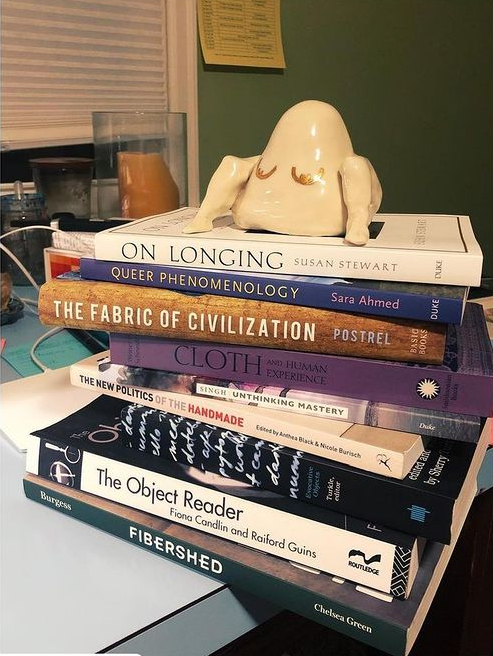
photo credit: @jonivb.studio
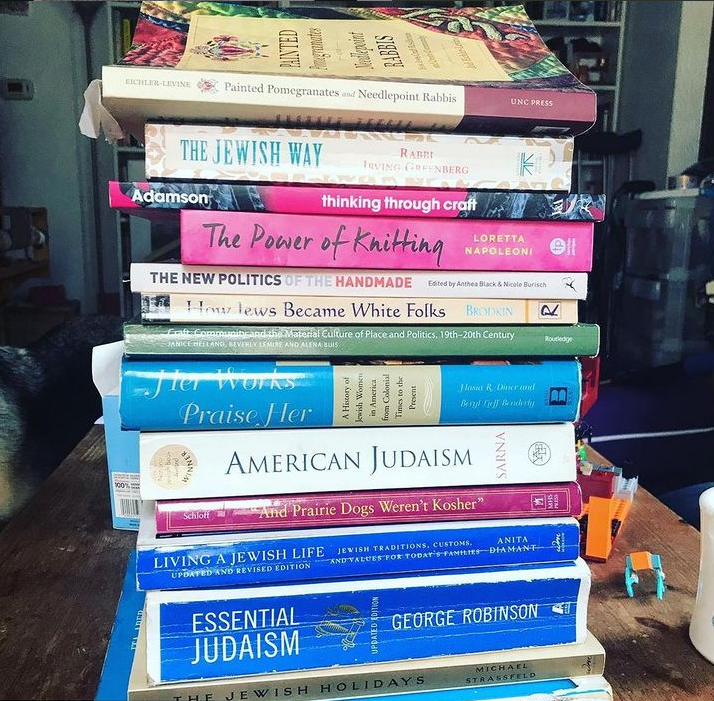
photo credit: @fiercebean
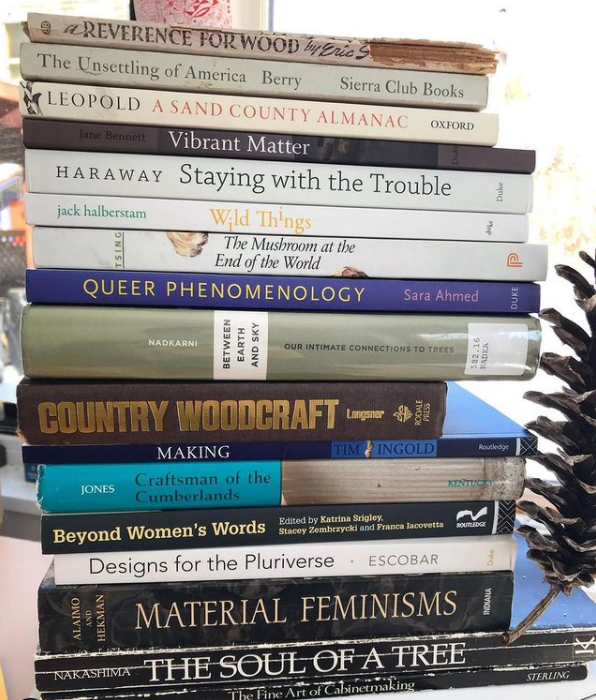
photo credit: @kvosh

photo credit: @agreatlake
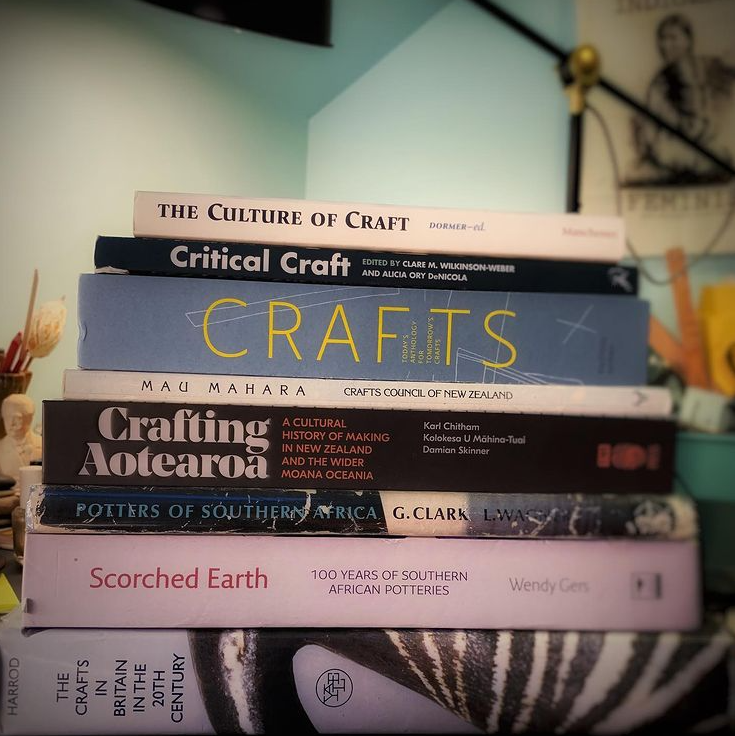
photo credit: @macraftstudieswwc
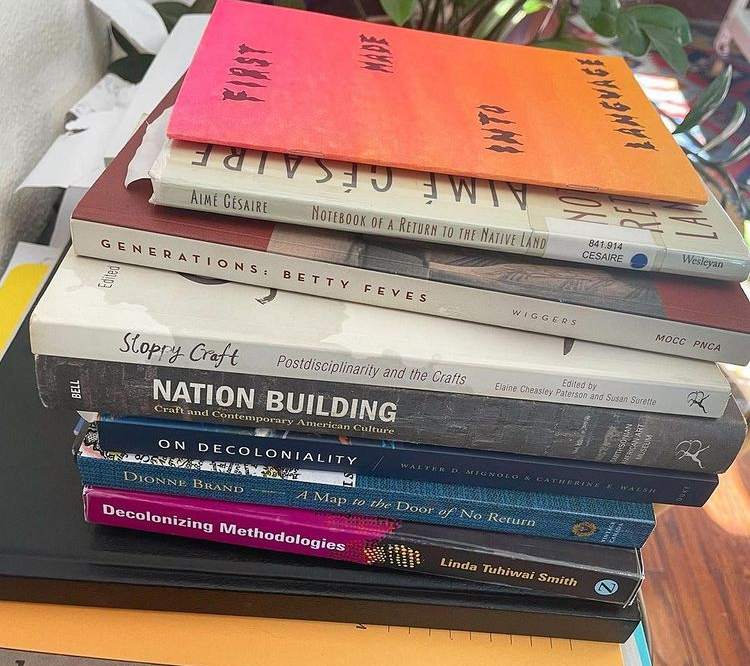
photo credit: @marugenia2
MACR CURRICULUM
The MA in Critical Craft Studies is a low-residency graduate program in craft history and theory. This full-time, four-semester/ five-residency program is the first of its kind in the US.
Students and faculty meet in person for two and a half weeks of lectures, workshops, seminars, readings, project work, and individual conferences each July and January. The two-year continuous program begins in July; all July residencies are held on the Warren Wilson campus, and January residencies are held in downtown Asheville with classes at the Center for Craft. Students return to campus for a fifth and final residency to present their final projects in a public colloquium, co-organized by Warren Wilson College and the Center for Craft.
Following each residency, students continue their semester coursework from home, working both individually and collaboratively with other students in their cohort. Each student spends 20-25 hours per week on program work outside of class meetings, including readings; writing and research assignments; meetings with faculty, advisors, and mentors; and group meetings.
Classroom sessions take place online and may occur during evenings and/or weekends.
Coursework builds critical thinking, research methods, and experience with formats ranging from writing and podcasts to exhibitions and curriculum development. Students move through four courses: History and Theory, Research Methods Lab, Materials Lab, and Practicum Project. Courses connect with a thematic focus: introduction; Craft and Public Space; Craft and Communication; and Craft and Learning.
Final projects demonstrate applied knowledge in craft histories and theories, and may include: a journal-article length thesis; an exhibition with essays, programs and texts; curricular development with lectures; a scholarly conference with publication; a podcast series; or a series of short critical essays.
Scroll down for course information.
All images by lydia see, except where otherwise indicated.
History and Theory
This course is focused on craft history and theory. Year 1 (History and Theory I and II) focuses on craft discourse and the forms through which craft history is conveyed, for example: survey texts, museum publications, and anthologies. Students engage archives as a form and source for research and knowledge construction, examining how archives reinforce knowledge, and explore ways to create knowledge outside of existing constraints.
With a focus on writing and resources available in English, the course addresses contemporary and modern thinking about craft from multiple global perspectives. Close attention is paid to representation, voice, and unsettling coloniality.
This writing- and experience-focused course includes: individual and group research projects, field trips, writing development, and work with mentors in addition to instructor and advisors.
During their second year, students learn and apply multidisciplinary theoretical concepts in History and Theory III and IV. Through close readings and applied projects that build research and communication skills, the course expands craft discourse, through study of concepts drawn from multiple fields, such as: anthropology, culture studies, embodied learning, folklore, gender studies, material culture, philosophy, and sensorial studies.
The reduced load of History and Theory III and IV (3 credits each) is structured to accommodate revisions of final Practicum Projects.
Total 14 credits over four semesters:
CRFT 5130 History and Theory I - 4 credits
CRFT 5230 History and Theory II - 4 credits
CRFT 6130 History and Theory III - 3 credits
CRFT 6230 History and Theory IV - 3 credits
Materials Lab
This course is designed to focus on applying questions about materials and materiality through observation, analysis, and presentation of concepts in a range of formats (writing, audio guides, podcasts, zines, etc.). Materials Lab I and II shifts thematically with each instructor, and may focus on developing a variety of skills to convey research and observations through writing, examine topics connected to craft such as the environment and sustainability, or build object analysis skills.
Materials Lab III and IV expands writing and observational skills to applied learning contexts, such as site analysis, audio guides, student-led publication, and symposium content development. The course is designed to introduce a wide variety of ideas and ways of presenting them from short-form essays to journalistic texts, films to long-form essays and opportunities for object analysis. Materials Lab III and IV continue to develop students’ analytical skills in connecting how craft materials and materiality are examined and communicated through multiple platforms and models, culminating in a group project to demonstrate experiential learning and collaborative work towards representing concepts in a physical form; this student-led and faculty-guided project might be a publication, exhibition, symposium or other form. Attention is paid to ensure that sources and discussions include diverse sources from within and outside of academia.
The reduced load of Materials Lab III and IV (3cr each) is structured to accommodate revisions of final Practicum Projects and completion of student-led publication/symposium.
Total 14 credits over four semesters:
CRFT 5140 Materials Lab I - 4 credits
CRFT 5240 Materials Lab II - 4 credits
CRFT 6140 Materials Lab III - 3 credits
CRFT 6240 Materials Lab IV - 3 credits
Research Methods Lab
This course introduces students to a range of research methods, from historical analysis through examination of archival documents to developing and conducting research interviews, data analysis drawn from design anthropology to public pedagogy through Wikipedia and social media platforms. Through individual and group projects, Research Methods Lab I and II offer a combination of textual analysis skill development with applied learning experience developing, conducting, and analyzing research interviews. Research Methods 2 is structured to prepare students for year 2, when they will complete their Practicum Projects.
Research Methods III and IV continue the focus on applied learning through group projects that may include: Wikipedia entries to expand craft knowledge online; analysis of decades of a single craft publication; exploration of social media platforms as tools to convey history and theory; data tracking and analysis; and learning to develop and clearly articulate research methods and strategies employed in their own research and projects. Attention is paid to scholarship in the broadest sense — to include indigenous knowledge and diverse voices, and to recognize power structures in how research is formulated, conducted, and conveyed. Courseload shifts to support moving students through the development of research from concept to completion.
The reduced load of Research Methods Lab III and IV (3cr each) is structured to accommodate the application of course readings and analysis to each student’s Practicum Project.
Total 14 credits over four semesters:
CRFT 5150 Research Methods Lab I - 4 credits
CRFT 5250 Research Methods Lab II - 4 credits
CRFT 6150 Research Methods Lab III - 3 credits
CRFT 6250 Research Lab Methods IV - 3 credits
Practicum Project
The Practicum Project course offers guided space to conduct, develop, and complete a comprehensive research project. Practicum Project I focuses on different forms through which research is communicated, and offers students a chance to experiment with potential final projects. Practicum Project II offers additional time for students to independently complete and submit their final project proposal, and continues the exploration into various possible forms for a final project. Mentors work with the Director through Practicum Project I and II to help open up potential research avenues, explorations of forms, and building professional relationships. The course moves from idea to proposal through the first year, preparing students to submit their research proposal upon return in the July Residency for the second year.
Practicum Project III and IV focus on the completion of the Practicum Project. Students submit their Qualifying Draft at the end of Practicum Project III and complete the project during the course of Practicum Project IV.
Practicum Project V focuses on the sharing of research and presentation of learning in multiple forms. Final presentations are shared with currently enrolled students as well as friends, family, and leaders in craft and craft-adjacent fields as a way to model teaching through what one has learned.
Total 14 credits over four semesters plus final residency:
CRFT 5160 Practicum Project I - 3 credits
CRFT 5260 Practicum Project II - 3 credits
CRFT 6160 Practicum Project III - 5 credits
CRFT 6260 Practicum Project IV - 5 credits
CRFT 6300 Practicum Project V Presentation - 2 credits
